Howe Library Celebrates Black History Month! Check out our New Books Spotlight for books featuring Black Resistance.
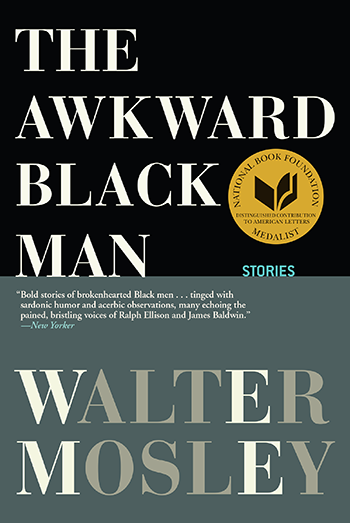
The awkward black man: stories by Walter Mosley (eBook)
"A new collection of short fiction from the Edgar Award-winning author of Devil in a Blue Dress and Trouble is What I Do. With his extraordinary fiction and gripping television writing, Walter Mosley has proven himself a master of narrative tension. The Awkward Black Man collects seventeen of Mosley's most accomplished short stories to showcase the full range of his remarkable talent. Touching, contemplative, and always surprising, these stories introduce an array of imperfect characters--awkward, self-defeating, self-involved, or just plain odd. In The Awkward Black Man, Mosley overturns the stereotypes that corral black male characters and paints subtle, powerful portraits of unique individuals. In "The Good News Is," a man's insecurity about his weight gives way to illness and a loneliness so intense that he'd do anything for a little human comfort. "Pet Fly," previously published in the New Yorker, follows a man working as a mailroom clerk--a solitary job for which he is overqualified--and the unforeseen repercussions he endures when he attempts to forge a new connection. And "Almost Alyce" chronicles failed loves, family loss, alcoholism, and a Zen approach to the art of begging that proves surprisingly effective."
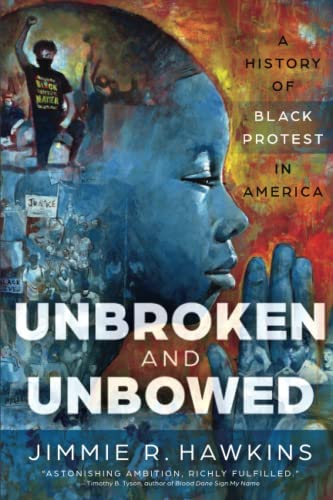
Unbroken and unbowed: a history of Black protest in America by Jimmie R. Hawkins (eBook)
"In this compelling and informative volume, Jimmie R. Hawkins walks the reader through the many forms of Black protest in American history, from pre-colonial times though the George Floyd protests of 2020. Hawkins breaks American history into five sections, with subsections highlighting how Black identity helped to shape protest during that period. These protests include slave ship mutinies, the abolitionist movement, the different approaches to protest from Frederick Douglas, W. E. B. Dubois, and Booker T. Washington, protest led by various Black institutions, Black Lives Matter movements, and protests of today's Black athletes, musicians, and intellectuals, such as Lebron James, Beyonce, and Kendrick Lamar. Hawkins also covers the backlash to these protests, including the Jim Crow era, the Red Summer of 1919, and modern-day wars on the Black community in the form of the War on Drugs and voter suppression."
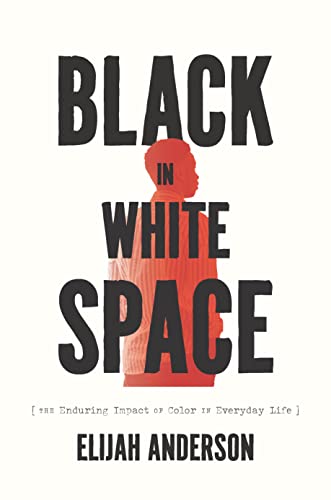
Black in White space: the enduring impact of color in everyday life by Elijah Anderson
"In Black in White Space, Elijah Anderson chronicles moments in which Black people are jarringly and often violently treated as outsiders-- a birder in Central Park, a jogger in a rural Georgia town, or a college student lounging on an elite university quad. Anderson shows that due to expansions in racial equality over the past fifty years, Black Americans increasingly gain access to elite white spaces. But instances of discrimination and harassment serve to remind us that racial barriers are firmly entrenched-- for the elite, the middle-class, and the poor alike. Anderson also delves into the stratifications and stereotypes that have made black and white spaces so persistently separate and difficult to break through, showing that regardless of the social or economic position of a Black person, the stereotype of the iconic ghetto looms in the white imagination, associating all Black people with crime, drugs, and poverty. From conversations on the street corners of Philadelphia with Black men who can't get work to Anderson's own morning jogs through a Cape Cod vacation town, he gathers a wealth of stories to shed new light on the urgent and dire persistence of racial discrimination in the United States”
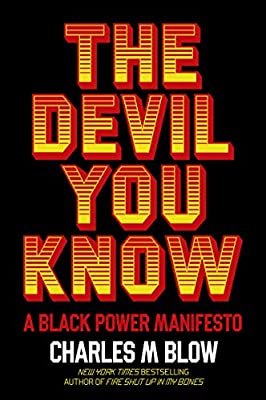
The devil you know: a Black power manifesto by Charles M. Blow
"Columnist and author Charles Blow never wanted to write a "race book." But as violence against Black people--both physical and psychological--seemed only to increase in recent years, culminating in the historic pandemic and protests of the summer of 2020, he felt compelled to write a new story for Black Americans. He envisioned a succinct, counterintuitive, and impassioned corrective to the myths that have for too long governed our thinking about race and geography in America. Drawing on both political observations and personal experience as a Black son of the South, Charles set out to offer a call to action by which Black people can finally achieve equality, on their own terms"
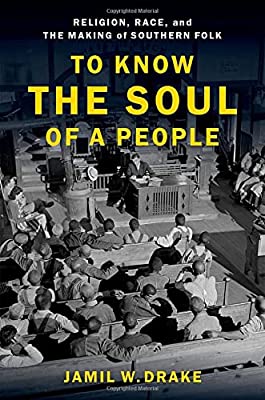
To know the soul of a people: religion, race, and the making of the Southern folk by Jamil W. Drake
"The folk category has often been used to highlight the vibrant religious cultures of marginal communities in the U.S. To Know the Soul of a People, though sympathetic to this perspective, shows how the category in the study of religion contributed to shaping the perceptions of black and lower-class communities in American social and political thought. From 1924 to 1941, a cadre of social scientists used the category in their field studies of black rural populations in the poor South. Charles Johnson, Guy Johnson, Lewis Jones, Alison Davis, Gunnar Myrdal and other second-generation male social scientists deployed the category to jettison biological views of racial inferiority in order to amplify prejudice and "stagnant" economy that they felt contributed to the social status of black (and white) rural communities in the Jim Crow south. But the reformist agenda of the social scientists took a detour away from prejudice and socioeconomic conditions to concentrate on the cultural and behavioral deficits of America's folk population. Perusing field-notes, correspondences, proposals, monographs, this book argues that these liberal-minded social scientists had a hand in the making of a folk population on the basis of their perceived antiquated and underdeveloped religious behaviors. Jamil W. Drake demonstrates how the religion of rural black communities in the social sciences laid the seeds to the ideas of the culture of poverty after World War II"
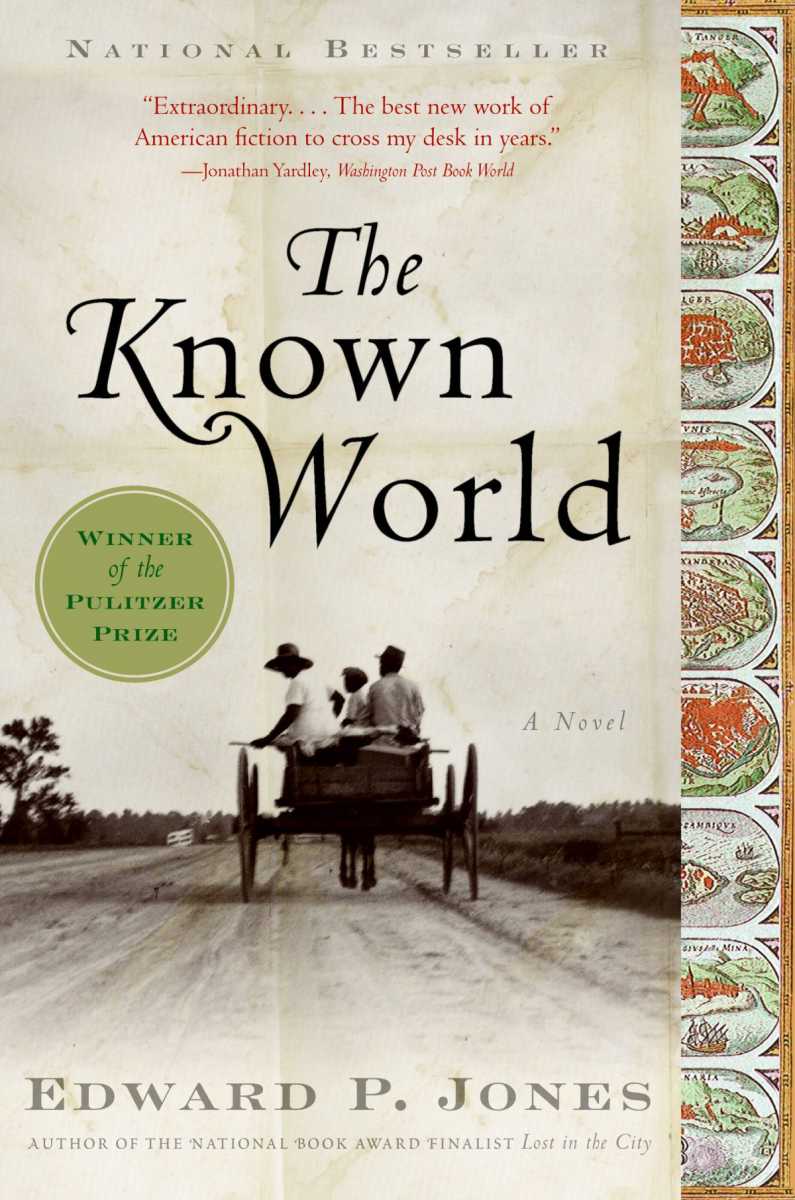
The known world by Edward P. Jones
"When a plantation proprietor and former slave--now possessing slaves of his own--dies, his household falls apart in the wake of a slave rebellion and corrupt underpaid patrollers who enable free black people to be sold into slavery."
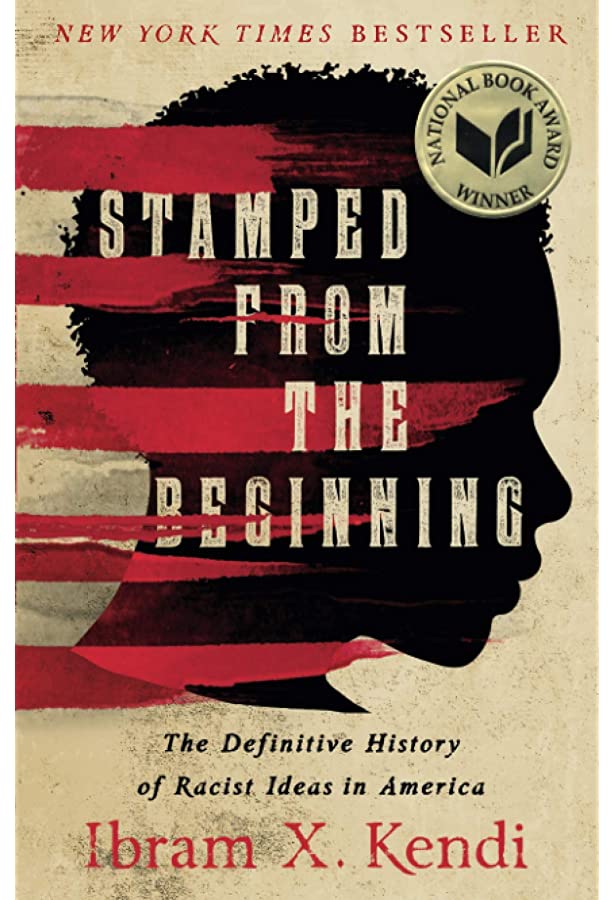
Stamped from the beginning: the definitive history of racist ideas in America by Ibram X. Kendi
"Americans like to insist that we are living in a postracial, color-blind society. In fact, racist thought is alive and well; it has simply become more sophisticated and more insidious. And as historian Ibram X. Kendi argues, racist ideas in this country have a long and lingering history, one in which nearly every great American thinker is complicit. Kendi chronicles the entire story of anti-Black racist ideas and their staggering power over the course of American history. Stamped from the Beginning uses the lives of five major American intellectuals to offer a window into the contentious debates between assimilationists and segregationists and between racists and antiracists. From Puritan minister Cotton Mather to Thomas Jefferson, from fiery abolitionist William Lloyd Garrison to brilliant scholar W.E.B. Du Bois to legendary anti-prison activist Angela Davis, Kendi shows how and why some of our leading proslavery and pro-civil rights thinkers have challenged or helped cement racist ideas in America. As Kendi provocatively illustrates, racist thinking did not arise from ignorance or hatred. Racist ideas were created and popularized in an effort to defend deeply entrenched discriminatory policies and to rationalize the nation's racial inequities in everything from wealth to health. While racist ideas are easily produced and easily consumed, they can also be discredited"
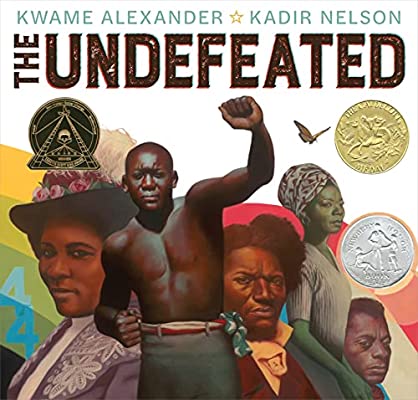
The undefeated by Kwame Alexander; illustrated by Kadir Nelson
"The Newbery Award-winning author of The Crossover pens an ode to black American triumph and tribulation, with art from a two-time Caldecott Honoree. Originally performed for ESPN's The Undefeated, this poem is a love letter to black life in the United States. It highlights the unspeakable trauma of slavery, the faith and fire of the civil rights movement, and the grit, passion, and perseverance of some of the world's greatest heroes. The text is also peppered with references to the words of Martin Luther King, Jr., Langston Hughes, Gwendolyn Brooks, and others, offering deeper insights into the accomplishments of the past, while bringing stark attention to the endurance and spirit of those surviving and thriving in the present. Robust back matter at the end provides valuable historical context and additional detail for those wishing to learn more."
